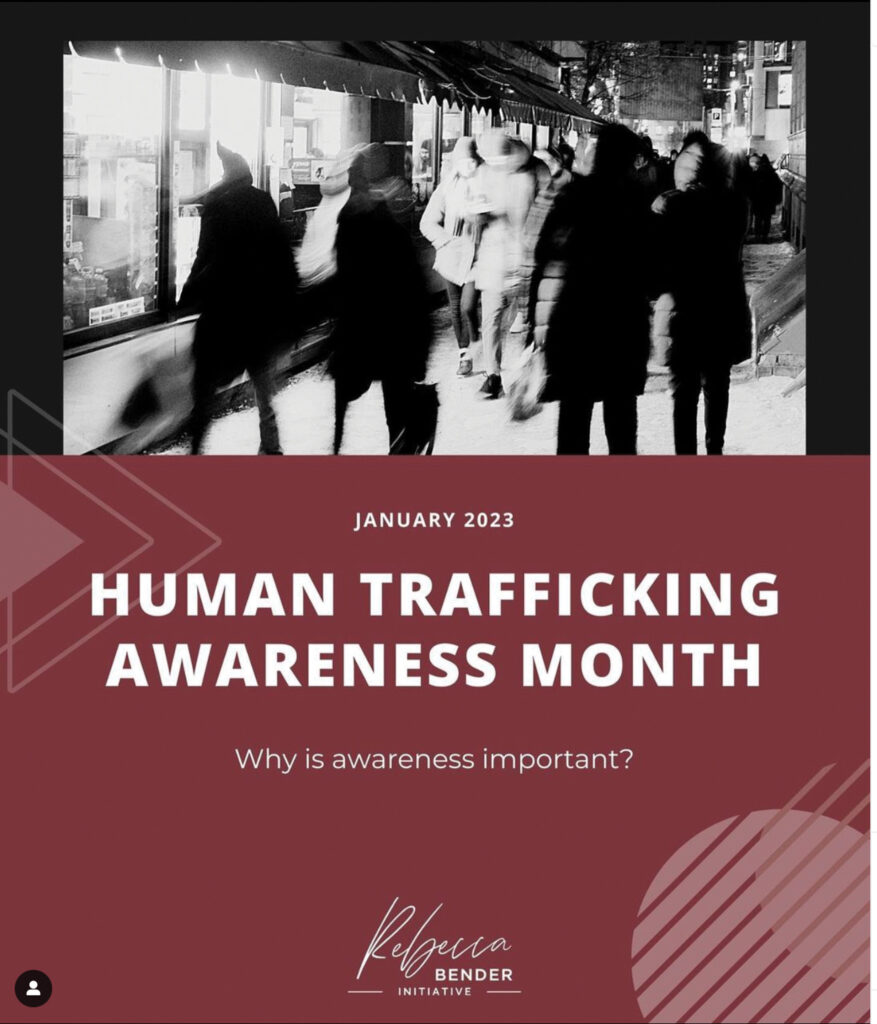
In Observation, DIGS Spotlights National Expert Rebecca Bender and Her Quest to Spread Truths About—and End—this Oft-invisible Crime
“It’s not always what you see in the movies, and victims don’t always self-identify,” states Rebecca Bender, a national expert on human trafficking whose trainings have reached over 115,000 law enforcement, national security, medical and legal professionals, from FBI and Homeland Security to local police and prosecutors, who are on the front lines of this crime. Rebecca Bender is on a quest, and it starts with separating fact from fiction.
“Sensationalism sells,” she says. “Unfortunately sensationalism also fuels the misidentification of victims.”
Myths about trafficking, she points out, obscure its realities, making it more difficult for concerned people to keep loved ones safe, and for its victims to be identified.
“We’re not seeing victims who are right in our neighborhoods,” she explains.
Rebecca Bender, who is regularly called to serve as a subject matter expert in trafficking cases, also has public courses, talks and media—including a recent TEDx talk, “Sex Trafficking in Plain Sight”—focused on correcting well-circulated myths about the crime. Such myth-busting truths include: Kidnapping is rare. (Less than 1% of trafficking, she points out, involves stranger abduction.)
Not all victims come from lower-income households. Trafficking can involve a sex act and/or forced labor. In the case of sex trafficking, “buyers” are largely men from all walks of life. And more. Rebecca Bender gets foundational when discussing the dynamics of the crime.
“Human trafficking is a crime against a person that involves using force, fraud or coercion for commercial gain,” she describes.
As a primary gateway, she points out, a trafficker will typically target a vulnerable person with the intent to exploit their needs. To do this, they look to erode an individual’s personal boundaries and gain their trust.
Important, Rebecca Bender notes, is that this behavior may not always lead to trafficking, but is an important red flag that should always spark wary. To the oft-asked question posed to Bender about tips for keeping loved ones safe from victimization, her work related to recognizing and defending against mental tactics and strongholds used by traffickers—from recruitment and brainwashing to compliance and control—is pivotal foundational armour. Rebecca Bender knows of what she speaks. She herself is a survivor of the crime, escaping a trafficker more than 15 years ago.
“I started speaking and sharing my story,” she recalls.
Over time she created a training for law enforcement that utilized her experience—and it caught fire. Her approach was that of an interpreter who could translate the culture and dynamics of human trafficking, with the goal of enabling those on the front lines to be more trauma-informed, and thus more effective when interacting with victims. Rebecca Bender’s work expanded to helping victims of trafficking.
“I was finishing my master’s degree and I wanted to mentor other survivors,” she recalls.
Elevate Academy was born. Started by Bender in 2014, the online school is available in the U.S. and 16 other nations. Students attend a three-month program focused on professional development, with courses like budgeting and entrepreneurship part of the curriculum.
“I wanted to help survivors figure out how to navigate the rest of their lives,” says Bender of Elevate, which to date has graduated 1,200 students, “and I wanted to offer it to anyone, anywhere.”
Training in such life-management essentials is often a vital part of what she terms a survivor’s Now What—the design of a new life fortified by a strong personal vision and the means to carry it out.
As for Rebecca Bender, her work continues on an upward trajectory of empowering survivors, aiding those who shut traffickers down, and thoughtfully increasing awareness of the crime, in all its complexities, among people from all walks of life who, by being properly informed, are now better armed.
Or, as the activist plainly and powerfully puts it: “You need the right diagnosis in order to get the right treatment.”
Rebecca Bender Initiative
rebeccabender.org
Elevate Academy
elevate-academy.org
Images Courtesy of Rebecca Bender